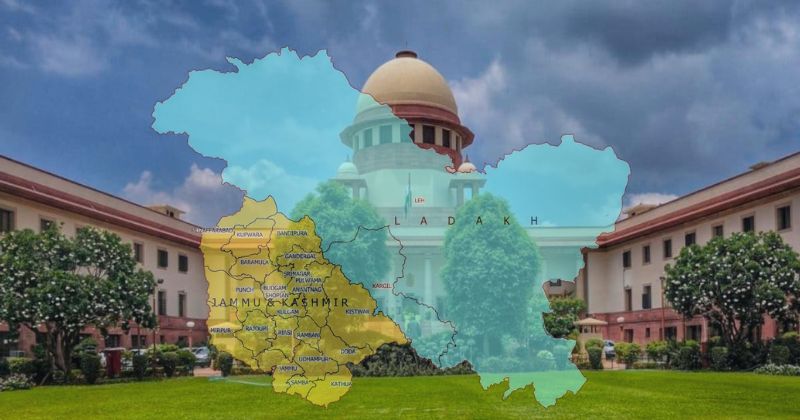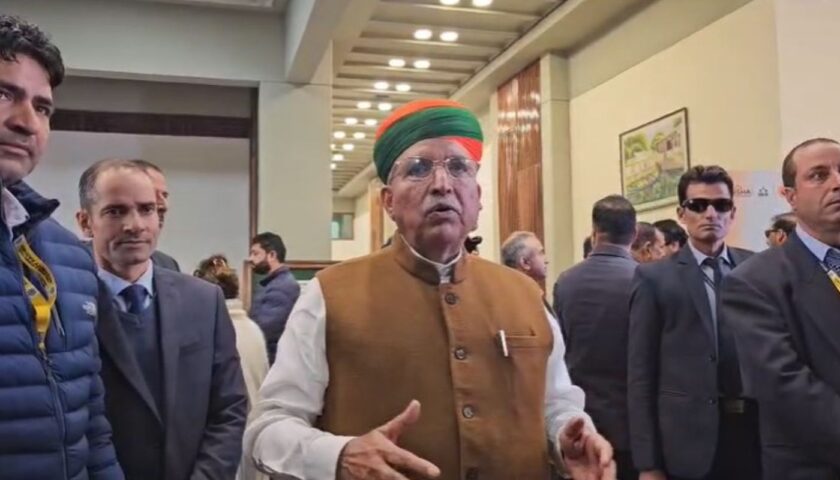Top court’s observation comes after Kapil Sibal, who represented some of petitioners against nullification of Article 370, referred to 2016 Brexit referendum in UK to emphasise the importance of people’s opinion in a democracy
Maintaining that democracy functions through institutions, the Supreme Courton Tuesdayvirtually rejected the idea of plebiscite in Jammu and Kashmir, saying there was no question of a Brexit-type referendum under the Indian Constitution.
“You can’t envisage a Brexit-type referendum. That’s a political decision which was taken by the then government. But within a constitution like ours, there is no question of a referendum,” a five-judge-Constitution Bench led by Chief Justice of India DY Chandrachud told senior counsel Kapil Sibal, who represented some of the petitioners against nullification of Article 370 which gave special status to the erstwhile state of Jammu and Kashmir.
The top court’s observation came after Sibal referred to the 2016 Brexit referendum in the United Kingdom to emphasise the importance of people’s opinion in a democracy.
“Your lordships must remember Brexit. What happened? There was no constitutional provision (in the UK) seeking a referendum. But when you want to sever a relationship, you must seek the opinion of the people because people are central to the decision,” Sibal said.
However, the CJI said, “In a constitutional democracy, seeking the opinion of people has to be through established institutions. So long as democracy exists, any recourse of the will of the people has to be expressed by an established institution.”
As Sibal submitted that Parliament accorded approval to executive acts which unilaterally changed the Constitution as it was applicable to J&K,” the CJI said, “Once we presume that Parliament can (amend it), any amendment of Article 370 would be subject to criticism on the ground of morality, not (for want of) power.”
Sibal repeatedly termed the nullification of Article 370 as a “political act” bereft of constitutional authority. “Can the Union of India in this manner terminate a relationship recognised in the Constitution of India?” he asked.
On the third day of hearing, the Bench frequently posed questions to Sibal on various aspects of the complex constitutional issues involving the provisions of the Constitution of India and the Constitution of Jammu and Kashmir.
The Bench sought to know if Article 370 — which was envisaged as a temporary provision—be converted into a permanent provision merely because the Constituent Assembly of the state ceased to exist. “Was there an act required by the Indian Constitution – either in the form of a constitutional amendment or a parliamentary intervention to convert that into a permanent provision?” it asked.
To Sibal’s argument that Article 370 (3) which talked about making Article 370 inoperative, could not be acted upon in the absence of the Constituent Assembly of Jammu and Kashmir as envisaged under the proviso to Article 370(3), the CJI wondered of the proviso could swallow the main provision.
“You (Union of India) can change any provisions of the Constitution because you have a majority. This majoritarian culture cannot destroy the edifice of what our forefathers gave us. They cannot possibly justify it unless a new jurisprudence comes to light that they can do whatever they like as long as they have a majority,” Sibal submitted.
During the hearing, Solicitor General Tushar Mehta said, “After 2019 exercise (nullification of Article 370) approximately 1,200 laws are now applicable to Jammu and Kashmir… All beneficial legislations available to other citizens now are available to J&K.”




